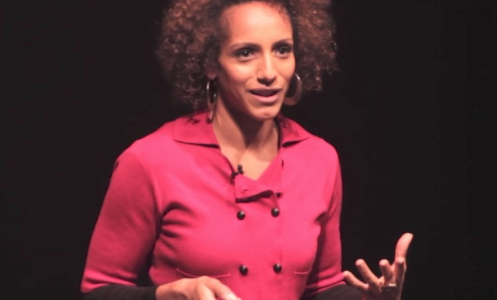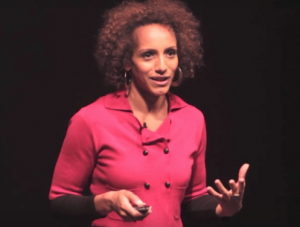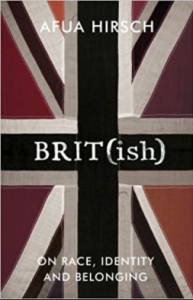
Identity crisis in Britain’s failure to deal with its colonial past


Afua Hirsch, the writer, and Broadcaster, created a national identity crisis in Britain’s failure to come to terms with its colonial past.
“The past is past, You can’t rewrite history” former V&A Director Sir Roy Strong said.
Hirsch attempted to fill crucial gaps in British recollection of the colonial story,
Born in Norway to a Jewish-English father and a Ghanaian mother, Hirsch grew up in Wimbledon in South West London, with summer holidays in the Alps and a private education finishing at Oxford.
Her childhood was marred by racism, which brought her to despise her fuller Afro features, her Ghanaian grandmother being subjected to dog excrement on her doorstep.
In Senegal, she discovered that she was very British after all. Her vivid description of the landscape, the “breeze-kissed, fertile and misty town” of Aburi, to which her ancestors fled while the Ashanti Empire was at war with the British. As Hirsch goes about her work in Accra as West Africa correspondent for the Guardian. She eventually turns her focus back to Britain, and stumbles across the most important revelation of all is that the reason for feeling that she does not belong there is that Britain has an identity crisis of its own.
According to Hirsch Britain has not “ white history as British history is the multi-racial, interracial story of a nation interdependent on trade, cultural influence and immigration from India, Africa and Central and East Asia and other regions and continents populated by people who are not white, invasion by successive waves of European tribes most of whom, had the concept of whiteness existed at the time, would not have fitted into it either.”
She was made feel inferior because of her mixed race heritage and she examines how our attitudes have changed.
She also highlights the brutalities of slavery and the colonial project of constructing race as an instrument of exploitation and Britain’s shameful position as the world’s leading slave nation, the mess of abolition which saw slavers using parliamentary loopholes to continue trading, and the slaves themselves having to work another four years for free to help foot the hill. She also reminds us the roles played by black abolitionists such as Olaudah Equiano and Ottobah Cugoano, whose memories have not been honoured with statutes by the British establishment.
She highlights the higher rates of poverty among black people in the UK compared with whites. She argues that Britain will never be able to move on from the problem of the race until it acknowledged how racial it has been.
Brit(ish): On Race, Identity and Belonging by Afua Hirsch, Jonathan Cape £ 16.99, 384 pages.
